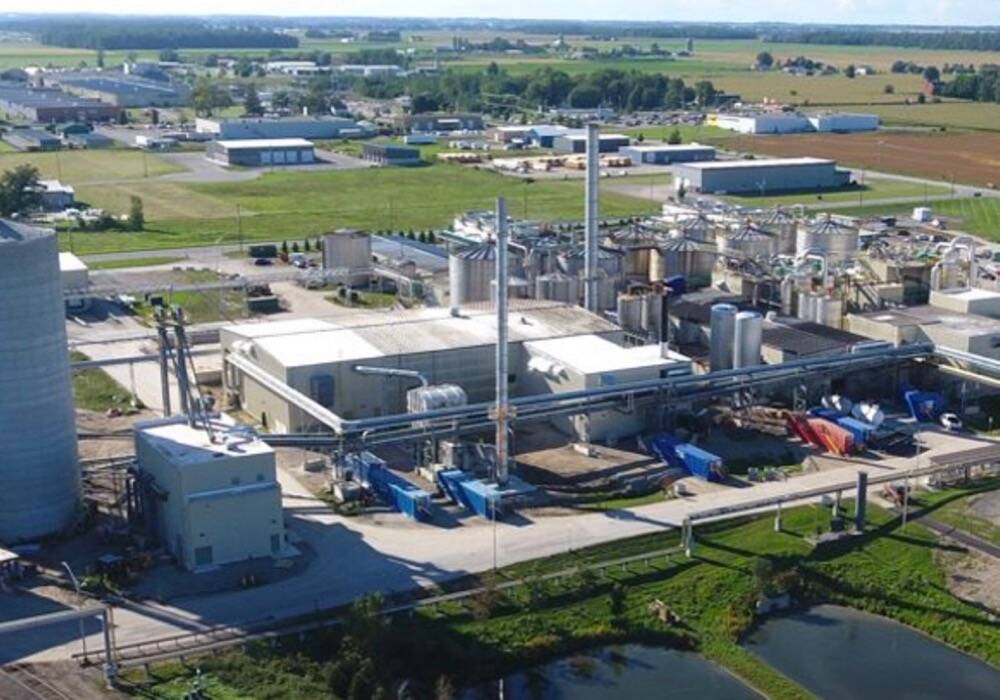IGPC Ethanol acquired by Belgian energy company

IGPC Ethanol has been acquired by Belgian energy company Alco. The merger could see the Aylmer plant, Canada’s second-largest producer of ethanol, diversify its output.
Read Also


Mental health programs receive $10 million investment
$10 million in new federal and provincial funding ensures farmers can access critical mental health services and support through the Canadian Mental Health Association (CMHA) and Ontario’s Agriculture Wellness Ontario’s Farmer Wellness Initiative and Guardian Network programs to the end of 2027.
The deal was finalized in December 2024, though Brad Linder, director of Commercial Services for IGPC (now known as AlcoEnergy Canada) said the idea of a transition was years in the making.
Why it matters: The Aylmer, Ont. ethanol plant is a major purchaser of corn in southwestern Ontario.
IGPC was a division of Integrated Grain Processors Co-operative Inc., established in 2002 by a group of southwestern Ontario farmers looking to gain more value from their grain crops.
The ethanol plant was established in 2007 with the help of additional agribusiness partners and government funding.
Linder said long-term investor members were growing dissatisfied with the performance of shares, since they were not openly traded and didn’t reflect the increasing value of the company.
That, combined with age, led to members asking the IGPC board of directors two years ago to address these issues. As a result, IGPC hired a consulting company to examine how similar plants were valued.
“Essentially its report said, if you want to know the value, you have to put yourself on the market. You have to put yourself up for sale,” said Linder.
The consultant told IGPC a buyer would not be interested in the co-operative structure, largely because of the one-person one-vote system, where all shareholders carried the same sway.
This system, he said, “helps you get things started and raise funds, but it starts to work against you, because large shareholders don’t have any more say than small ones.”
Enter Belgian industry giant Alco Energy, which was seeking expansion in North America. Linder said Alco looked at several plants in the U.S. but were unimpressed with their key performance indicators.
The Aylmer plant also provides a geographic advantage compared to the European plants Alco is used to.
“Their plants in Belgium and Holland are on the waterfront, and they’re quite a distance from the corn that’s growing there,” said Linder. “Plus, most of the corn that they’re using is coming in on barges, versus us, where it’s all trucked in.”
Linder said there are no plans to change the plant’s current practice of buying local corn.
“Always, when you were looking at purchasing your corn, the logistics, the basis, comes into play.
“Where we are situated, we’re not on the water, we’re not on main rail lines like a lot of the U.S. plants are, and there’s good reasons why we are located here. The trucking distance (from supplying farms) is easy, so we will continue to be supplied by truck,” he said.
Linder added Alco could look toward different markets for the ethanol produced in Aylmer beyond the standard uses.
“Every single ethanol producing company out there right now is looking at, where do we pivot? Jet fuel, SAF, there’s many different things on horizon right now away from the conventional blend with gasoline.”
He said this could include paint, chemicals, and the pickling industry.
“There’s an amazing number of different uses for the ethanol molecule. However, you need to have developed that market. You can’t just say you’re producing ethanol and expect to ship it out to all those markets.”
Currently, AlcoEnergy Canada is producing a fuel grade ethanol, which is purchased by petroleum companies because they have a blend mandate, said Linder.
This, he said, could potentially increase in demand for local corn, though this cannot be said with certainty.
The company was concerned with the potential reduction in the need for gasoline over time, due to the shift in increased electric vehicle production.
But Linder said that concern eased after the company did its own research, which showed there is 10-15 years left before a major reduction in automobile fuel demand.
“But at the same time, it does take you a long time to pivot your markets.
“We are feeling good as our own company here in Aylmer, having a partner elsewhere in the world that is more advanced than us about understanding those markets and where to go with it.”
Source: Farmtario.com

